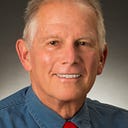Presidents’ Day
Woodrow Wilson’s Lifelong Love Affair with America’s Game
U.S. presidents’ love affair with baseball dates back to George Washington who wrote in his journal that during Valley Forge he “sometimes throws and catches a ball for hours with his aide-de-camp.” Every president since Washington, except Teddy Roosevelt and Calvin Coolidge, had a passion for base ball, as Washington then referred to the game. Roosevelt thought baseball was a “mollycoddle game,” and Coolidge attended to appease his passionate-fan wife, Grace.
Abraham Lincoln, upon hearing in 1860 that he won the presidential nomination, allegedly responded, “They’ll have to wait a few minutes [for his formal acceptance] until I have another turn at bat.” In 1893, Herbert Hoover was Stanford University’s shortstop, and at age 88 called himself one of the sport’s “oldest fans.” In 1910, William Howard Taft became the first president to toss out the now-traditional first pitch.
Dwight Eisenhower played semi-pro baseball under the pseudonym “Wilson” which, luckily for Ike, preserved his West Point scholarship. Richard Nixon was an avid fan, a players’ favorite and knowledgeable enough about baseball to be seriously considered as a potential MLB commissioner. George H. W. Bush, a 1948 Yale University graduate, was a standout Eli first baseman who played in the first College World Series and kept his well-oiled MacGregor mitt handy in his Oval Office’s desk drawer.
But after historians researched the baseball archives, and read countless news accounts, the nearly unanimous consensus is that Woodrow Wilson, the former Princeton University president, New Jersey governor, and from 1913–1921, a two-term 28th president, was baseball’s biggest fan.
From an early age, baseball and its intricacies absorbed Wilson. As a child, Wilson sketched in his geometry notebook a hand-scribbled diagram of a baseball diamond and labeled it “Base Ball Ground.” Wilson later played varsity center field for Davidson College and was Princeton’s assistant manager. Scouts said that Wilson was “a fine player,” but his teammates countered that the scholarly outfielder was often too caught up in his studies to show up for practice.
Author Curt Smith in “The Presidents and the Pastime: The History of Baseball & the White House” wrote that Wilson absorbed baseball more deeply than any White House occupant who preceded or succeeded him, an opinion that Washington Senators’ owner Clark Griffith, premier Senators’ first baseman Joe Judge and the peerless Ty Cobb all agreed with. Griffith had been watching Senators’ Opening Days for nearly 30 years, more than enough time to make a sound evaluation. Judge concurred that “Wilson was by far the best fan. He knew a lot of us players and came out to the park often. He’d run his car right on the field and we’d put a player who wasn’t in the game at each corner of the car to watch for fly balls.” Through a special arrangement between Wilson and Griffith, Wilson’s chauffeur would enter the stadium through an outfield gate where the then-ailing president could watch the game undisturbed. But Cobb paid Wilson the highest compliment when he called the president “the greatest American.”
In Wilson’s final years, the travails of World War I and a stroke had taken their toll on the former president, but he still found solace in baseball. Wilson invited his secretary Randolph Bolling to his Washington home’s basement, referred to as “the dugout,” where they reviewed the previous day’s box scores, and second guessed the losing managers. At his life’s end, infirm from his stroke, plagued with constant migraines and painful dyspepsia, baseball provided Wilson with a few, rare calming moments. Wilson died in 1924, age 67, one year before his beloved Senators won the World Series.
Joe Guzzardi is a Society for American Baseball Research and Internet Baseball Writers Association member. Contact him at guzzjoe@yahoo.com.
